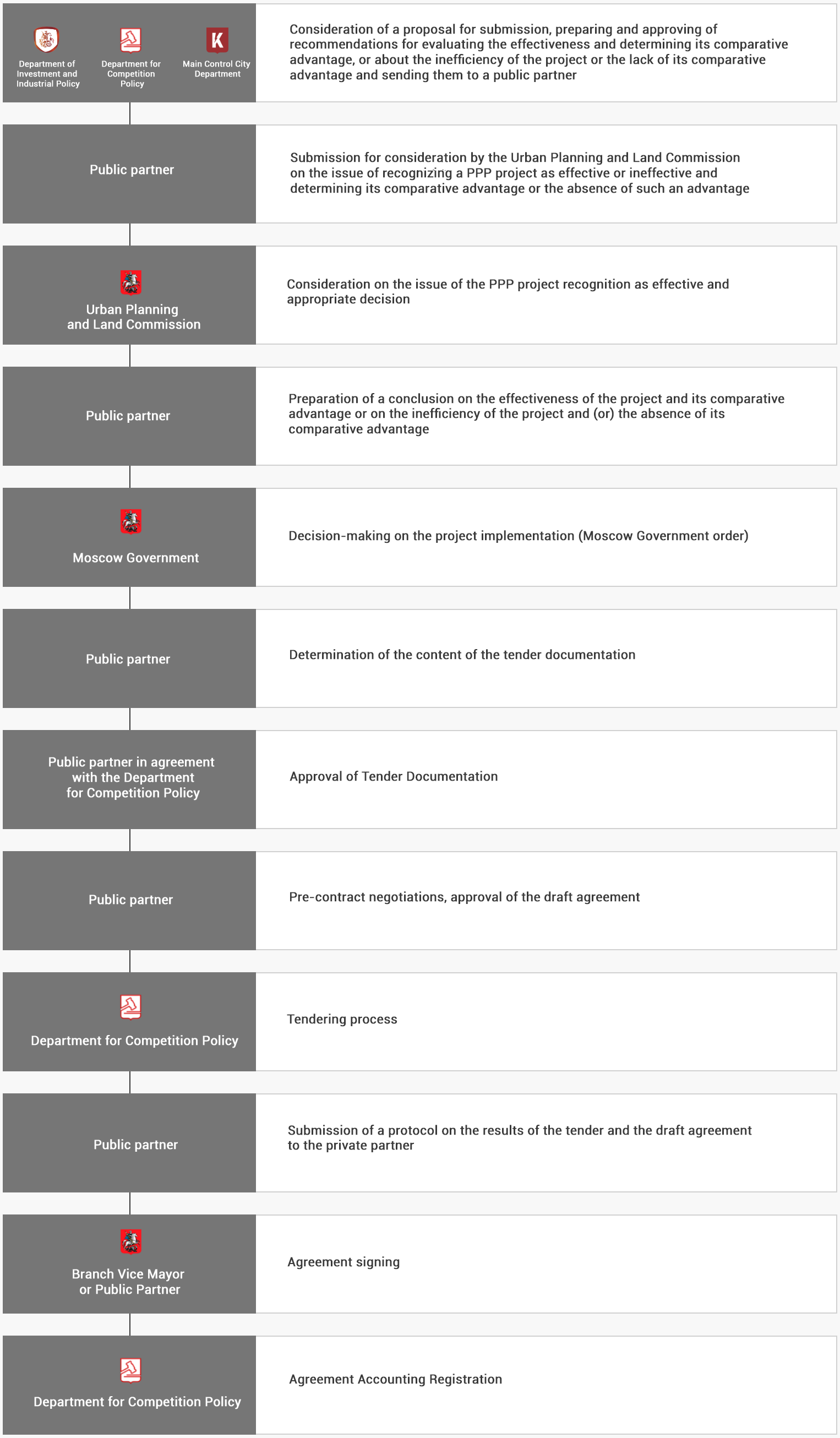Legal Framework
Public-private partnership (PPP) is a way to develop public infrastructure based on long-term interaction between the state and business, in which the private party is involved not only in the design, financing, construction or reconstruction of the infrastructure facility, but also in its subsequent operation (provision of services at the created facility) and/or maintenance.
The purpose of PPP is from an economic point of view to stimulate the attraction of private investments in production of services, works and consumer goods, which should be ensured by public entities through related budgets, and to reduce the state participation in economic activity when the same tasks can be more effectively fulfilled by business.
From the legal point of view it is about relations between public (Russian Federation, Russian region, municipality) and private entities. These relations are based on a public-private partnership agreement (PPPA) or concession agreement (CA) concluded between them, which are civil law contracts by their legal nature.
The legal definition of public-private partnership, municipal-private partnership is contained in the Federal Law # 224-FZ of July 13, 2015 “On public-private partnership, municipal-private partnership in the Russian Federation and on amendments to certain legislative acts of the Russian Federation” (Article 3): this is a legal cooperation between a public partner on the one hand and a private partner on the other hand, which is legalized for a certain period of time and based on pooling of resources and distribution of risks, which is carried out on the basis of an agreement on public-private partnership, an agreement on municipal-private partnership concluded in accordance with this Federal Law in order to attract private investments in the economy, to ensure the availability and better quality of goods, works, services by public and local authorities.
PPPA and CA are independent legal institutions, which are regulated by dedicated federal laws in their consideration, conclusion and implementation. However, CA is one of the PPP forms (models).
The basis for conclusion of PPPA or CA is always a project implementation decision of an authorized public authority representing the interests of public entity.
Theway to conclude a PPPA or CA is a tender for the right to conclude an agreement. The federal laws also specify cases when it is possible to conclude an agreement without a tender. PPP is a popular and rapidly developing form of interaction between private investors and the state because it implies a complete sharing of risks between them.

 Chrome
Chrome
 Firefox
Firefox
 Opera
Opera





















































